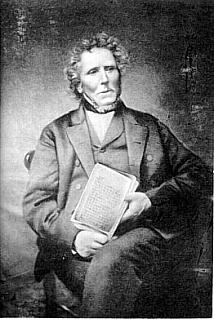Everybody is Familiar
From The New CriterionNot long ago, in an ill-advised moment of levity, I posted on the website of The New Criterion a brief but less than sombre account of the latest from the doom-sayers who are predicting the imminent demise of the newspaper business in this country. In doing so, I regret any impression I may have given of not being so respectfully grief-stricken as I might have been at the prospective loss of so many distinguished journalistic citizens. In retrospect, I can see that it was highly insensitive to take as my title a phrase that Paul Starr, one of the viewers-with-alarm, warned those who, like me, were “angry with the mainstream media” against — namely, “Let the bastards suffer.” It was also probably unacceptably flippant on my part to have suggested as I did that one reason for the parlous state of American newspapers was that they were so boring.
As it happened, none of this insensitivity on my part seems to have raised any hackles, most likely because the media are well-practised at tuning out any criticisms of themselves. But I did get into trouble by calling readers’ attention to a story in The Daily Telegraph of London about a young Briton who apparently dropped dead of excitement as his train pulled into Bangkok. That, I said, was a story that instantly made one want to read it, and it was made even more interesting by the fact that its opening lines, with their hint of the absurd, sounded as if they might almost have been to a story by Saki:
A teenage backpacker may have collapsed and died from ‘excitement’ on a train in Thailand after suffering a sudden brain haemorrhage, an inquest heard. Algernon Lendrum, 19, who was known by friends and family as Mr Lendrum, was travelling with a friend last summer when he keeled over as their over night train reached Bangkok. . .
This, I thought, raised all kinds of questions in the reader’s mind — not only about the nature of the young man’s “excitement” but also about why someone rejoicing in the Wildean name of Algernon should be known to friends and family as Mr Lendrum. Well, I thought no more about it until, some days later, I got an irate e-mail from someone named Marina Thompson, as unknown to me as Mr Lendrum himself, who wrote as follows. I have preserved Ms Thompson’s spelling and punctuation, apart from the asterisks denoting a naughty word):
Im not sure if anyone else has emailed you in the last week referring to your entry on Algernon Lendrum, if not then they should have. As he was one of my closest friends i have to say how offensive and childish i found your entry. Certainly not worthy of news, to refer to the death of a young man, brother, son and close friend to hundreds as ‘an absurdist comedy’ makes me feel sick. I have no idea where the ‘Mr Lendrum’ title came from, he was known as Algy by his parents, siblings and friends. His tragic story is not an invention or joke. I dont know what right you have to publish this crap on the internet, but to use the story of someones death as fodder for your s***** blog is unbelievable, as a house master at Westminster and a student of Cambridge i would have thought that you would have more respect.
Although, I only taught at Westminster for a term and was never a house master there, I felt as guilty and justly chastened for my bad manners as if I had been. All the same, I couldn’t help feeling just the tiniest bit of resentment that I had been press-ganged, as it were, into the intimate circle of Mr Lendrum’s family and friends and therefore of those with a duty of respect to him and others among the bereaved.
Fame, it seems, however slenderly based, enables you to claim the whole world among your acquaintance, and a newspaper article about your death is apparently fame enough, however near death newspapering itself might be. But what had got Ms Thompson so exercised was that I had assumed the “right,” as she put it, “to publish this crap on the Internet.” Of course, the language of rights is nothing but a reflex. Everybody has the right to publish any crap, short of child pornography, on the Internet. What she means is that the Internet brings her and me and millions of others together into a virtual village of which it is the garden fence, over whose inviting pales our once private gossip and rude remarks about each other can be overheard by everyone and taken offense at by anyone. The intimacy of our connection is a function not of kinship or proximity in the real world but any random collision between our virtual selves in an informational world so vast as to make such a collision look significant.
“What I’ve said before, only half in joke,” says Seamus Heaney in his autobiographical Stepping Stones, “is that everybody in Ireland is famous. Or, maybe better say everybody is familiar. Since I was a schoolboy, I’ve been used to being recognized on the road by old and young, and being bantered with and indeed being taunted.” The breathtaking democracy of the Internet has created something similar, an electronic Ireland, and made a prophet of the philosopher Emmanuel Levinas, who saw our duty to our fellow human beings as issuing only from our common humanity and the chance of our encounter rather than any of the traditional sources. There were always some important differences between the truly global and a village when that other prophet, Marshall McLuhan, came up with the concept half a century ago, but with each passing year they seem to loom less and less large. At least there is a global media village wherein the false intimacy of having our business known to the tuned-in world must have many hitherto unexplored consequences — among which, as I now discover, could be an end to innocent delight in the macabre or unusual circumstances surrounding the deaths of strangers.
When I was a boy and McLuhan a newly-minted cultural icon — how he would have loved the new use of that word! — there was a whole category of jokes known as “Famous Last Words” of the kind where one would say: “Look out for that cliff” and then answer oneself with a vocal simulation of the Doppler effect to indicate falling: “What cl-i-i-i-i-i-f?” How disrespectful! Do kids tell such jokes nowadays? Well, perhaps they do. I notice that one of the most popular shows on the Spike cable network is called “1000 Ways to Die” and is all about comic deaths — like that of the pot-heads who videotaped themselves trying to smoke poison sumac or the man who, attempting to unblock the long-uncleaned toilet in his newly-purchased second-hand recreational vehicle, poured bleach into it and asphyxiated himself with mustard gas. It’s a good thing that each show begins — along with the warning, “Do not attempt to try ANY of the actions depicted. YOU WILL DIE!” — with the disclaimer, “Names have been changed to protect the identities of the deceased.”
Otherwise, I wouldn’t like to be getting that program’s e-mail! But then I also wonder if the identities of the deceased are all that eager for protection, since there is a whole class of celebrities who are famous chiefly for the manner of their deaths. Perhaps there are still alive somewhere and vigilant against offense some descendants of the French composer Charles- Valentin Alkan (1813-1888), who was once said to have died as he tried to retrieve a volume of the Talmud from the top shelf of his book case and pulled the thing over on himself. Now, according to his Wikipedia entry, “This apocryphal tale, which appears to have been circulated by Delaborde, has been effectively disproved by Hugh Macdonald, who reports a contemporary letter from one of Alkan’s pupils explaining that Alkan had died following being trapped beneath a falling porte-parapluies (a heavy coat/umbrella rack).” That makes the story even funnier, though at some expense to Alkan’s dignity.
The opposite is the case with the Civil War General John Sedgwick, of the Union cause, who was once reputed to have died on the battlefield at Spotsylvania in 1864 as he pronounced the words: “They couldn’t hit an elephant at this dist—.” Now, so Wikipedia tells us — how useful the Internet is for some things! — the latest scholarship holds that he may have said it, but that he probably got the whole sentence out before being hit by the Confederate sniper. Also, they may not have been his absolutely last words. And let’s not forget the story that everyone knows of Isadora Duncan, her long scarf caught in the spokes of a Bugatti in 1927 — though Wikipedia claims that the car was an Amilcar and that Buggatti [sic] was her affectionate nickname for the handsome young Italian mechanic, Benoît Falchetto, with whom she was proceeding to an assignation in Nice at the time of the accident.
At any rate, Lady Deborah MacMillan has not forgotten her. The widow of the choreographer, Sir Kenneth MacMillan — who himself died suddenly of a heart attack backstage at a Covent Garden revival of his ballet Mayerling in 1992 — is staging a revised and scaled-down revival of Isadora, her late husband’s ballet about the legendary dancer by the Royal Ballet this spring. Yet even though Miss Duncan was famous in her lifetime for her unconventional “lifestyle” — as they had not yet learned to call it at the time — and her radical political and artistic views, it is hard to imagine that hers would still be the name to conjure with that it apparently is if not for the unconventional manner of her demise. She is also fortunate, perhaps, in having no descendants to take offense at sniggering reminders of it, since her two young children themselves died in a bizarre motor accident in Paris in 1913.
Two other deaths caused much more of a stir in the British press than poor Mr Lendrum’s during February and March. One was that of Ivan, the severely handicapped six-year-old son of David Cameron, leader of the Conservative Party in Parliament, whose short time on the earth was a subject of melancholy contemplation for certain columnists and pundits who were looking for exemplary morals to be drawn from it, like Hamlet with the skull of Yorick — or, rather, like Gertrude Stein announcing of the death of Isadora Duncan that “Affectations can be dangerous.” (Now there are words to live by.) The politicians and pundits in Master Cameron’s case were looking for something similar and, as good citizens of the media village, needed a way to show empathy as well as respect in the course of saying something profound. Gordon Brown, who himself had lost a young child, said in Parliament that “Every child is precious and irreplaceable and the death of a child is an unbearable sorrow that no parent should ever have to endure.” William Hague, standing in for Mr Cameron on the other side of the house, also suggested that it would be a far better world if he had had the designing of it.
His loss, and the child’s illness that had led to it, were also said to have added to his father’s qualifications for high political office. Matthew d’Ancona, the editor of The Spectator, put the grief-stricken Mr Cameron on the magazine’s cover and wrote of ‘the transformative impact this little boy had upon the man who will probably be our next Prime Minister.”They say that all publicity is good publicity, and it’s hard to imagine any publicity’s trying harder to be good than the Spectator’s cover story. “Ivan deepened in him a sense of broader responsibility to the vulnerable,” wrote Mr d’Ancona of the Tory leader.
Cameron had always been a One Nation Tory in the sense that he believed that the NHS and the education system should be world-class public services and not just a safety net. But what blossomed within him was something more: not just noblesse oblige but a genuine interest in how a Tory prime minister could help the weakest members of society.
All of which may well be true without being quite what we ought to hear on the occasion of a child’s death. Genuine emotion is almost by definition precluded from public expression, where it is inevitably a means of manipulation or self-aggrandizement. That’s why the use being made of it as grist for the political mills and the unspoken assumption that the personal is always and immediately available for political purposes leaves rather a bad taste in the mouth — though of course I’m a fine one to talk after my disrespect for poor Mr Lendrum. I’ve no doubt that the Cameron family was comforted by so much wisdom and solicitude, as well as the interest of the nation’s newspaper readers that it implied, though they might also have secretly wished — vain hope in the media village! — for the matter to have remained a private one.
The reaction to Ivan Cameron’s death may have owed something to the other very public death that dominated the British media for more than a month at around the same time and even received a certain amount of attention in the United States, that of Jade Goody. Undistinguished by beauty, brains or talent, the 27-year-old Miss Goody first came to national attention as a contestant on the “reality TV” show, “Big Brother” in 2002. Her deliciously déclassé accent and manners of a sort which the posh and would-be posh British media classify as “chav,” together with her talent for malapropisms (“They were trying to use me as an escape goat”) and willingness to be the first reality TV star to engage in sexual activity before the camera brought her such fame that by 2007 she had appeared on several other reality shows as well as in gossip magazines, had written, or had ghost-written, a best-selling autobiography, had launched her own line of perfume and, as the final certification of her celebrity, become a contestant on “Celebrity Big Brother.”
There, however, she badly blotted her copybook by using a racial epithet to refer to a fellow contestant of Indian descent. All of a sudden sales of the autobiography and perfume dried up and she became a drug on the celebrity market. She thought to redeem herself by going on the Indian equivalent of “Big Brother,” called “Bigg Boss,” last summer, but she had barely arrived on the set when she was told of the cancer that was subsequently said to be killing her. The illness meant that her celebrity was restored to her and in greater measure than ever. For weeks there were daily bulletins about her health, in the “quality” press as well as the tabloids, as if she were a member of the royal family, and the pathos of her approaching death appeared to be a subject of irresistible fascination. The Prime Minister was moved to comment that the “whole country will be worried and anxious about her health,” as, indeed, seemed to be the case.
Likewise, the Home Secretary, Jack Straw, said in suspending the terms of the parole under which her 21-year-old boyfriend, Jack Tweed, had been let out of prison on an assault charge so that he could spend the night after their wedding with her, was said by a spokesman to have “enormous sympathy for Jade Goody and her family at this time. She is showing extraordinary courage and his thoughts are with her and her family.”There was naturally extensive commentary on the deathbed wedding as well as her own christening and that of her two sons by another man. “Speaking shortly before the ceremony,” reported the Telegraph, her publicist “said Jade had told him she wanted her children to ‘know Jesus so we can keep in touch’.”
The media, congratulating themselves as much as her for the publicity surrounding her illness, noted that “hundreds of thousands of women” had been inspired by it to report for cervical cancer screening. A satirical commentator wondered if she might be “the first chav saint,” but the joke fell as flat as mine about poor Algy Lendrum. What’s funny about that anyway? Clearly she was a chav saint, though on the condition that her sainthood, like the rest of her life, should be played out in public, on the media’s stage, so that we all might have something to show our creditable feelings about — unless we are of the unregenerate minority who make jokes about it on the Internet.
Miss Goody also owns what must be the rare distinction, according to the Telegraph, of having been told by her publicist, Max Clifford, that she really ought to spend more time with her family. She herself didn’t think so and was said to be “still keen to have her photo taken and appear on the front pages of tabloid newspapers” for the very good reason that the time for her to cash in on her celebrity was short. She was sure to be dead, according to her own estimation, within a month at that point, and she wanted her young sons to be privately educated. Fortunately, she had been able to sell the media rights to her wedding to Mr Tweed for £1 million, and that provided another reason for the media’s congratulation of both parties to the transaction — for ensuring the young men’s future, presumably as part of the non-chav elite to which their mother could never have aspired.
Writing about the Facebook phenomenon in The New York Times, Randall Stross recently noted:
When the distinction blurs between one’s few close friends and the many who are not, it seems pointless to distinguish between private and public.
Or, if not pointless, at least futile. Though I’m not a member of Facebook, I seem by mentioning his name in public to have “friended” the late Mr Algy Lendrum — and to have betrayed our virtual friendship in the same instant by taking his death too lightly. Realizing what a faux pas this is in the media world we all inhabit today, I naturally regret it, but I can’t help also regretting that the day seems to be fast approaching when it is not only pointless and futile to distinguish between private and public but faintly indecent — just as, within living memory, it would have been to exploit one’s misfortunes, or those of a loved one, for personal gain, or to make a display of one’s compassionate nature.
Discover more from James Bowman
Subscribe to get the latest posts to your email.






